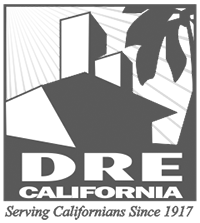FAQ
Generally speaking, you can purchase a home with a value of two or three times your annual household income. However, the amount that you can borrow will also depend upon your employment history, credit history, current savings and debts, and the amount of down payment you are willing to make. You may also be able to take advantage of special loan programs for first time buyers to purchase a home with a higher value. Give us a call, and we can help you determine exactly how much you can afford.
With a fixed-rate mortgage, the interest rate stays the same during the life of the loan. With an adjustable-rate mortgage (ARM), the interest changes periodically, typically in relation to an index. While the monthly payments that you make with a fixed-rate mortgage are relatively stable, payments on an ARM loan will likely change. There are advantages and disadvantages to each type of mortgage, and the best way to select a loan product is by talking to us.
An index is an economic indicator that lenders use to set the interest rate for an ARM. Generally the interest rate that you pay is a combination of the index rate and a pre-specified margin. Three commonly used indices are the One-Year Treasury Bill, the Cost of Funds of the 11th District Federal Home Loan Bank (COFI), and the London InterBank Offering Rate (LIBOR).
There is no simple formula to determine the type of mortgage that is best for you. This choice depends on a number of factors, including your current financial picture and how long you intend to keep your house. Loanco Mortgage can help you evaluate your choices and help you make the most appropriate decision.
For most homeowners, the monthly mortgage payments include three separate parts:
- Principal: Repayment on the amount borrowed
- Interest: Payment to the lender for the amount borrowed
- Taxes & Insurance: This feature is usually optional. Monthly payments are normally made into a go directly to the County Tax Assessor and property insurance company.
The amount of cash that is necessary depends on a number of items. Generally speaking, though, you will need to supply:
- Earnest Money: The deposit that is supplied when you make an offer on the house. This is typically 3% of the agreed upon sale price.
- Down Payment: A percentage of the cost of the home that is due at settlement
- Closing Costs: Costs associated with processing paperwork to purchase or refinance a house
The paperwork involved depends on what type of income you receive. There are two primary categories of incomes: A) Employed or B) Self-employed. Self Employed borrowers include retirees, sole proprietorship receiving a 1099 and/or filing Schedule “C” tax return, owners with > = 25% ownership of company, and/or any borrower who receives significant Schedule B, D or E incomes used for qualification purposes.
For Employed borrowers the minimum requirements are:
- A legible copy of drivers license or identification card for all borrowers
- A copy of paychecks covering a one month period (this is typically two pay-stubs if pay is biweekly or semimonthly, or a single stub if monthly)
- Last two most recent years W-2
- Last two months complete bank statements for checking, savings, investments, and retirement. If statement is issued only once a quarter, then only one statement is needed.
For Self-Employed borrowers including retirees:
- A legible copy of drivers license or identification card for all borrowers
- Last two years complete Federal Tax returns (State portion is not needed)
- Last two years complete Federal Tax returns for business if filed separately from individual (i.e. a Corporation, LLP or LLC)
- Last two months complete bank statements for checking, savings, investments, and retirement. If statement is issued once a quarter, then one statement will suffice. Please note: business assets cannot be used or considered. Only personal assets in the name of the borrower(s)
- Retirees: include social security award letter, pension award letter and/or an annuity distribution statement.




